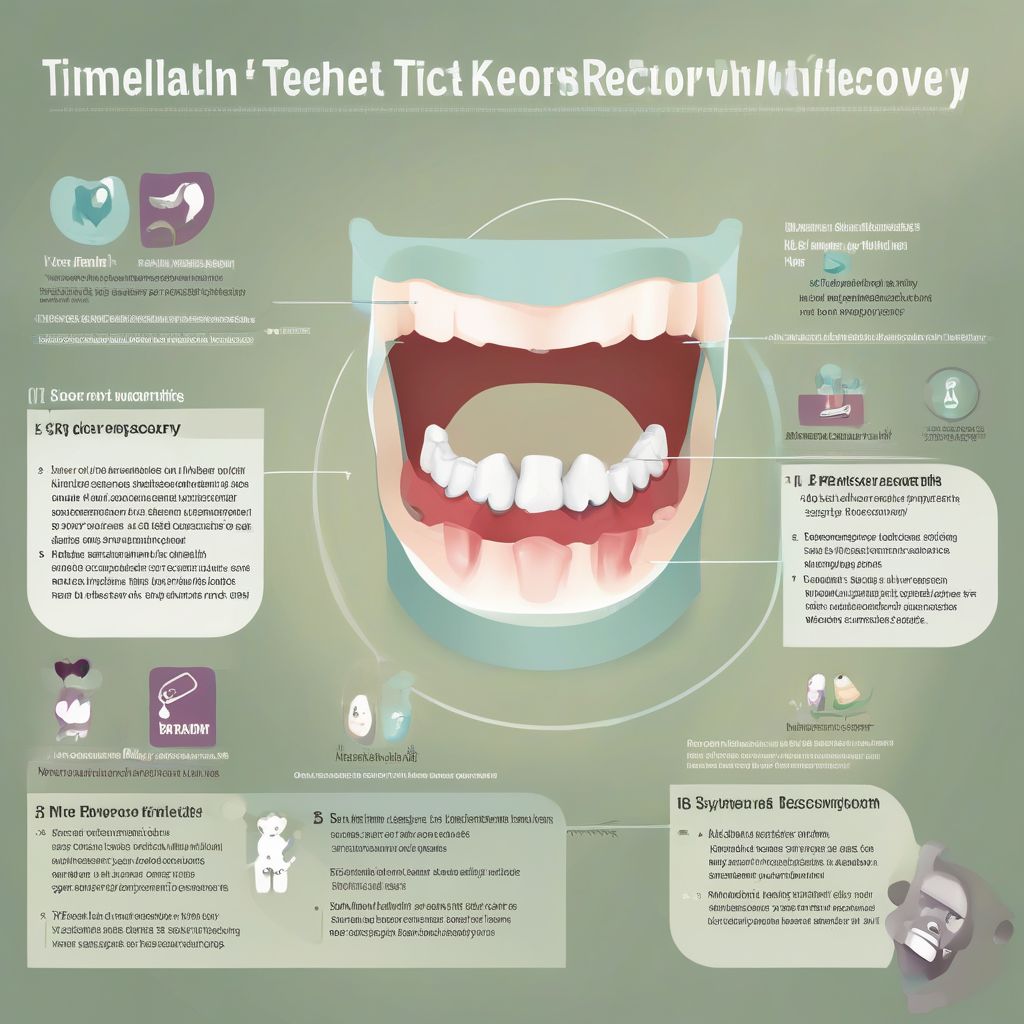Getting your wisdom teeth removed is a common procedure, but it’s natural to wonder, “How long does wisdom teeth recovery actually take?” The answer isn’t one-size-fits-all. While most people bounce back within a week, several factors can influence your individual healing time.
This article dives into everything you need to know about wisdom tooth recovery, from understanding the typical timeline to tips for a smoother experience.
Factors Influencing Wisdom Teeth Recovery Time
Several key factors can affect how long it takes to recover from wisdom tooth extraction:
- Complexity of the Extraction: Simple extractions, where the tooth is above the gum line, generally heal faster than impacted wisdom teeth that require surgical removal.
- Your Overall Health: Conditions like diabetes or a weakened immune system can potentially slow down healing.
- Following Post-Operative Instructions: Adhering to your dentist or oral surgeon’s instructions, including taking prescribed medications and following dietary guidelines, is crucial for optimal healing.
- Individual Healing Rate: Just like any surgery, everyone heals at their own pace.
General Wisdom Teeth Recovery Timeline
While individual experiences vary, here’s a general timeline of what you might expect:
Days 1-3: Initial Healing Phase
- Expect some swelling, pain, and minor bleeding. This is perfectly normal after surgery.
- Apply ice packs as directed to minimize swelling.
- Stick to soft foods like yogurt, applesauce, and broth.
- Take prescribed pain medication as needed.
- Gently rinse your mouth with saltwater as instructed by your dentist.
Days 4-7: Swelling Subsides, Discomfort Decreases
- You’ll notice a significant reduction in swelling and pain.
- You can gradually reintroduce more solid foods into your diet.
- Most people can return to work or school by this time.
Week 2 and Beyond: Continued Healing
- Swelling should be almost gone.
- You may still experience some mild stiffness or tenderness, but it should steadily improve.
- Continue to follow your dentist’s instructions regarding oral hygiene and diet.
 Wisdom Teeth Recovery Timeline
Wisdom Teeth Recovery Timeline
When to Contact Your Dentist
While some discomfort is normal, contact your dentist or oral surgeon immediately if you experience:
- Excessive bleeding that doesn’t stop with gauze pressure.
- Fever above 101.5°F (38.6°C).
- Increasing pain that isn’t managed by over-the-counter pain relievers.
- Signs of infection, such as redness, pus, or a foul odor.
Tips for a Smooth Wisdom Tooth Recovery
- Rest: Give your body time to heal by getting plenty of rest, especially in the first few days after surgery.
- Hydrate: Drink plenty of water to stay hydrated and aid in healing.
- Eat Right: Stick to a soft food diet for the first few days, gradually reintroducing more solid foods as tolerated.
- Oral Hygiene: Gently brush your teeth, avoiding the extraction sites, and use a saltwater rinse as directed.
- Avoid Straws: The suction from a straw can dislodge blood clots and delay healing.
- No Smoking: Smoking hinders healing and increases the risk of complications.
Frequently Asked Questions About Wisdom Tooth Recovery
Q: How long does it take for the hole to close after wisdom teeth removal?
A: The hole typically starts to close within a few days, but it can take several weeks for the gums to fully heal over the extraction site.
Q: When can I brush my teeth normally after wisdom teeth removal?
A: You can usually resume gentle brushing 24 hours after surgery, avoiding the extraction sites. Your dentist will provide specific instructions.
Q: Can I exercise after wisdom teeth removal?
A: It’s best to avoid strenuous exercise for at least a week after surgery. Light activity can resume sooner as tolerated.
Q: When can I eat solid food after wisdom teeth removal?
A: You can gradually reintroduce solid foods as tolerated, starting with soft options like mashed potatoes, scrambled eggs, and cooked vegetables. Avoid crunchy, chewy, or spicy foods that could irritate the extraction sites.
Conclusion
Recovering from wisdom tooth extraction takes time, but by following your dentist’s instructions and practicing good oral hygiene, you can promote a smooth and speedy recovery. Remember, everyone heals at their own pace, so be patient with your body. If you have any concerns during your recovery, don’t hesitate to contact your dentist or oral surgeon.